'To My Best Friend': Correspondence between Tchaikovsky and Nadezhda von Meck, 1876-1878
Editat de Edward Garden Autor Nigel Gotteri Traducere de Galina von Mecken Limba Engleză Hardback – 28 ian 1993
Preț: 536.00 lei
Preț vechi: 802.80 lei
-33% Nou
Puncte Express: 804
Preț estimativ în valută:
102.56€ • 107.37$ • 84.86£
102.56€ • 107.37$ • 84.86£
Carte tipărită la comandă
Livrare economică 25-31 martie
Preluare comenzi: 021 569.72.76
Specificații
ISBN-13: 9780198161585
ISBN-10: 0198161581
Pagini: 510
Ilustrații: frontispiece, 8 pp plates, 27 music examples
Dimensiuni: 161 x 242 x 35 mm
Greutate: 0.95 kg
Editura: Clarendon Press
Colecția Clarendon Press
Locul publicării:Oxford, United Kingdom
ISBN-10: 0198161581
Pagini: 510
Ilustrații: frontispiece, 8 pp plates, 27 music examples
Dimensiuni: 161 x 242 x 35 mm
Greutate: 0.95 kg
Editura: Clarendon Press
Colecția Clarendon Press
Locul publicării:Oxford, United Kingdom
Cuprins
List of illustrations; Abbreviations; Editors' notes; Introduction; Synopsis of letters; The letters; Appendix; Index of Tchaikovsky's works; Index of persons.
Recenzii
`Many of these letters appear here in English for the first time. To anyone who loves Tchaikovsky's music they make fascinating reading'Charles Osborne, Daily Telegraph
`elegantly presented'Classic CD
`In this, the centenary of Tchaikovsky's death ... this translation of letters between him and his benefactress, Nadezhda von Meck, could not be more welcome ... Edward Garden's Introduction provides an impressive, scholarly framework within which the reader may appreciate the succeeding correspondence ... the end product reads not at all like a translation, but like the living interchange - building, in its own peculiar way, into the intense relationship between two people - that these letters represent.'Musical Times
`Her [Galina von Meck's] collection of letters, from the significant years between 1876 and 1978, has been published before but not in such exemplary form: with tis excellent notes and introduction and synopsis of the letters this is a model of how to present correspondence and I congratulate all involved on their achievements ... Tchaikovsky ... is very revealing in these letters ... guilt, self-justification and remorse are to read between the anguished lines ... I have found many a clue within these pages and, no matter what the rest of Tchaikovsky year brings, I doubt if any single publication will surpass this collection of letters.'Classical Music
`This is only the first volume, but these letters are the most interesting of the series ... Galina von Meck's manuscript needed some tidying up, and the book is very well edited and presented so as to make it easy to use as well as to read. But the translations are essentially hers. She had a fluent, even racy command of English, and her sympathy with her two forebears help her to catch their contrasting tones of voice. All Tchaikovsky's biographers ... depend on these letters which can now be widely read and enjoyed for their extraordinary human story as well as for scholarly purposes.'BBC Music Magazine
'a document with its own interest: the romantic dialogue of a melancholic composer and a passionate lady ... The restriction of this volume to the first two years of that dialogue makes for a satisfying shape.'Times Literary Supplement
'Highly recommended for musicians and general readers alike, indeed to all who are interested in 19th century arts and culture.'M. Meckna, Texas Christian University, Choice, Dec '93
'admirably prepared anthology ... everything they ever said to each other is here ... The translations in general read very well, the letters (or sections of letters) which have been excised are clearly summarized, and Professor Garden has provided a fund of introductory material, not only describing the background to the whole correspondence and commenting pointedly on many matters of detail but also providing a handy preliminary synopsis of all the letters.'David Brown, Music and Letters, Vol. 75, No. 1, Feb '94
`elegantly presented'Classic CD
`In this, the centenary of Tchaikovsky's death ... this translation of letters between him and his benefactress, Nadezhda von Meck, could not be more welcome ... Edward Garden's Introduction provides an impressive, scholarly framework within which the reader may appreciate the succeeding correspondence ... the end product reads not at all like a translation, but like the living interchange - building, in its own peculiar way, into the intense relationship between two people - that these letters represent.'Musical Times
`Her [Galina von Meck's] collection of letters, from the significant years between 1876 and 1978, has been published before but not in such exemplary form: with tis excellent notes and introduction and synopsis of the letters this is a model of how to present correspondence and I congratulate all involved on their achievements ... Tchaikovsky ... is very revealing in these letters ... guilt, self-justification and remorse are to read between the anguished lines ... I have found many a clue within these pages and, no matter what the rest of Tchaikovsky year brings, I doubt if any single publication will surpass this collection of letters.'Classical Music
`This is only the first volume, but these letters are the most interesting of the series ... Galina von Meck's manuscript needed some tidying up, and the book is very well edited and presented so as to make it easy to use as well as to read. But the translations are essentially hers. She had a fluent, even racy command of English, and her sympathy with her two forebears help her to catch their contrasting tones of voice. All Tchaikovsky's biographers ... depend on these letters which can now be widely read and enjoyed for their extraordinary human story as well as for scholarly purposes.'BBC Music Magazine
'a document with its own interest: the romantic dialogue of a melancholic composer and a passionate lady ... The restriction of this volume to the first two years of that dialogue makes for a satisfying shape.'Times Literary Supplement
'Highly recommended for musicians and general readers alike, indeed to all who are interested in 19th century arts and culture.'M. Meckna, Texas Christian University, Choice, Dec '93
'admirably prepared anthology ... everything they ever said to each other is here ... The translations in general read very well, the letters (or sections of letters) which have been excised are clearly summarized, and Professor Garden has provided a fund of introductory material, not only describing the background to the whole correspondence and commenting pointedly on many matters of detail but also providing a handy preliminary synopsis of all the letters.'David Brown, Music and Letters, Vol. 75, No. 1, Feb '94
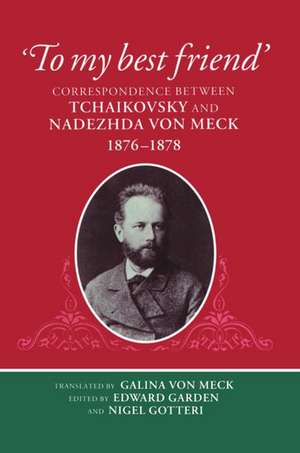

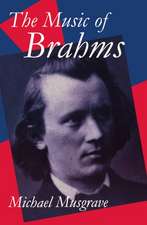



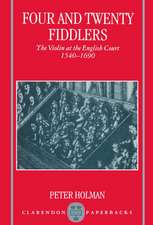
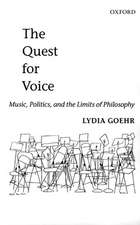
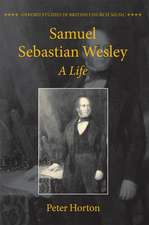
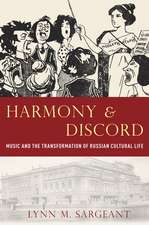


![Gustav Mahler [With CD (Audio)]: (Selections)](https://i0.books-express.ro/bt/9781780384450/gustav-mahler-with-cd-audio.jpg)